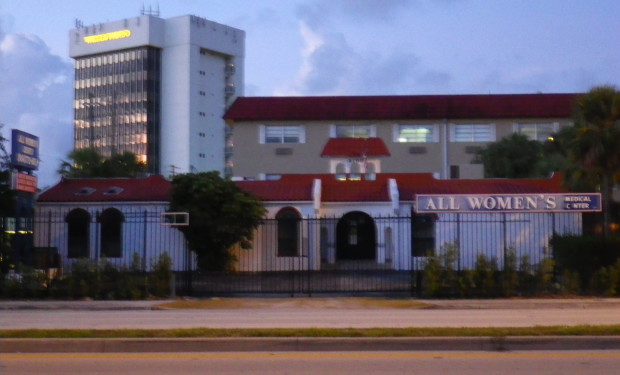To close or not to close? That is the Supreme Court’s question for Mississippi
SCOTUS to weigh in on Mississippi’s targeted regulations meant to shut down abortion clinics.
As early as today, the Supreme Court of the United States could effectively end abortion throughout the state of Mississippi. The Court has the ability to decide whether to take up a case concerning Mississippi’s admitting privileges law.
Mississippi’s admitting privileges law currently requires doctors to get cleared by hospitals near the state’s only abortion clinic to perform abortions
Mississippi’s governor Phil Bryant said, while signing the law concerning admitting privileges, the ultimate goal was to end abortion in Mississippi. However, until the Supreme Court decides whether to hear the case, Mississippi’s last remaining clinic in Jackson is to remain open based on the decision by the United States Court of Appeals for the Fifth Circuit.
Nancy Northup, president and CEO at the Center for Reproductive Rights, which represents Jackson Women’s Health Organization said, “[the Fifth Circuit’s] ruling ensures women who have decided to end a pregnancy will continue to have access to safe, legal care for now in their home state. But there is still only one clinic in the entire state, and it is still threatened by a law advanced by politicians over the opposition of respected medical associations, with the sole intent of closing that clinic permanently.”
Mississippi’s admitting privileges law currently requires doctors to get cleared by hospitals near the state’s only abortion clinic to perform abortions. For out-of-state doctors that commute into Mississippi, they must receive admitting privileges in case their patients experience serious health complications either during or after the abortion process.
Mississippi State Representative Sam C. Mims fires back, saying “[a]bortion is still legal throughout the nation and, of course, still legal in Mississippi…
Proponents of the admitting privileges measure assert that without these measures, abortion services could be extremely unsafe and unregulated. Mississippi’s Governor Phil Bryant that “[t]his measure is designed to protect the health and safety of women who undergo this potentially dangerous procedure, and physicians who provide abortions should be held to the same standards as physicians who perform other outpatient procedures.”
Nevertheless, admitting privileges are exceptionally difficult to obtain. Opponents of the law claim that admitting privileges are a way of making it more difficult to obtain an abortion. Many say that admitting privileges requirements set doctors up to fail because abortion is actually not very dangerous at all. They argue that it is already an extremely safe medical procedure since major complications for the procedure are particularly rare.
Further, many hospitals will not grant privileges unless doctors admit a certain number of patients to the hospital per year. Unfortunately, since complications are so rare, these physicians cannot meet the threshold numbers of admittance, so hospitals are therefore unwilling to grant privileges.
Mississippi State Representative Sam C. Mims fires back, saying “[a]bortion is still legal throughout the nation and, of course, still legal in Mississippi. This legislation did not deal with that; it only dealt with the regulation of abortion clinics.”
Even within Mississippi, women have to drive long distances to get to the lone remaining clinic in Jackson
Attorneys for Mississippi argued that even if Mississippi’s last abortion clinic closed, women seeking abortions may do so in other states. However, the Fifth Circuit judges responded by saying that prior court precedent from Roe v. Wade established a constitutional right to an abortion for all citizens; Mississippi should not be allowed to shift its obligation to its neighboring states. Even within Mississippi, women have to drive long distances to get to the lone remaining clinic in Jackson. For example, women in Iuka, Mississippi, which is located in the state’s northeast corner, must drive over 280 miles to reach the clinic.
Whether the Supreme Court decides to take up the Mississippi case is also a big deal for the future of similar admitting privileges laws in other states. Mississippi’s issue resolves around closing down its last clinic. However, in Texas, for example, the issue is a little bit different. Is a law that shuts down most but not all of the abortion clinics in a state constitutional?
We don’t know yet if the Supreme Court is ready to answer this question, but we do know that the justices will have to answer it sooner or later. Either way, it will be very interesting to see how this will turn out for Mississippi.






